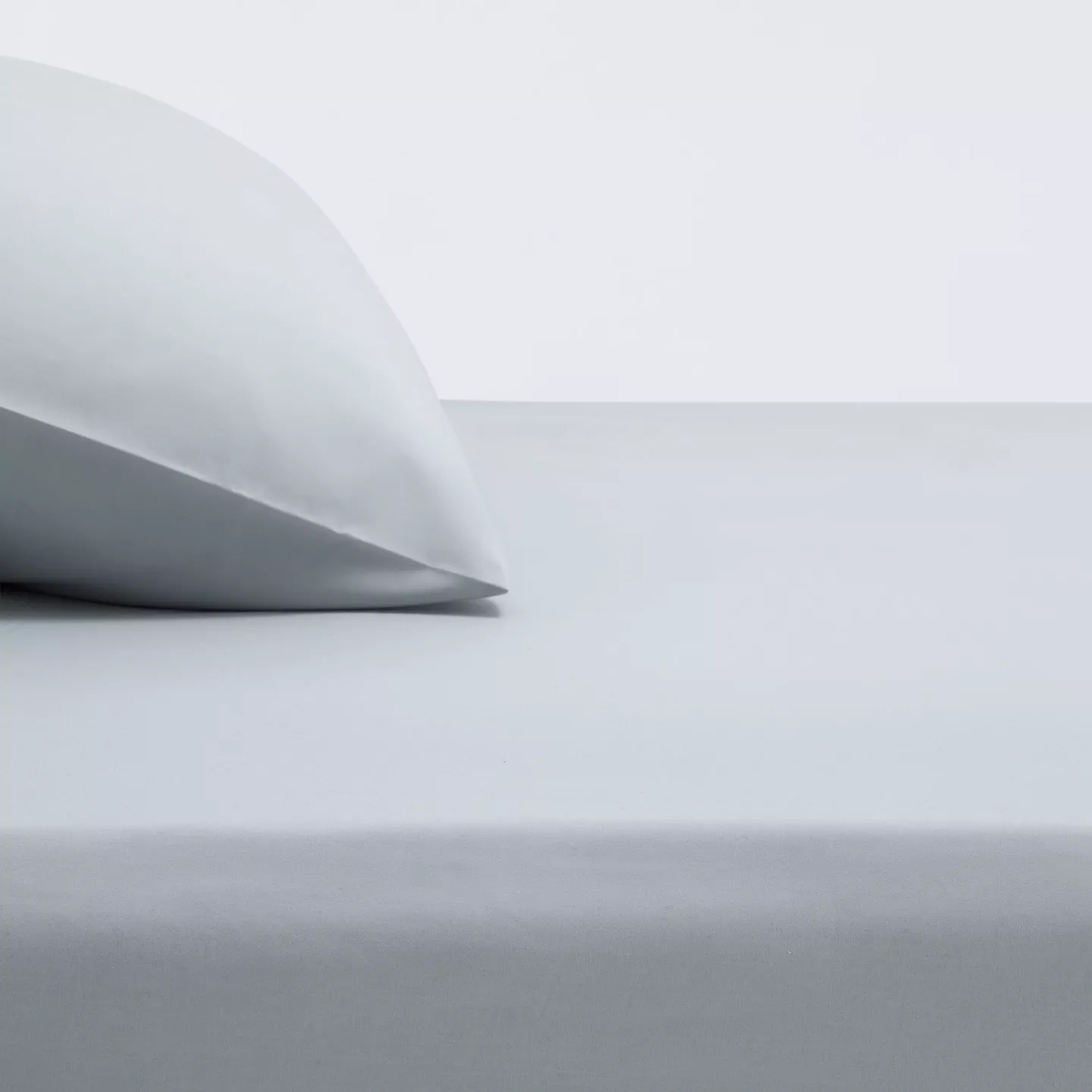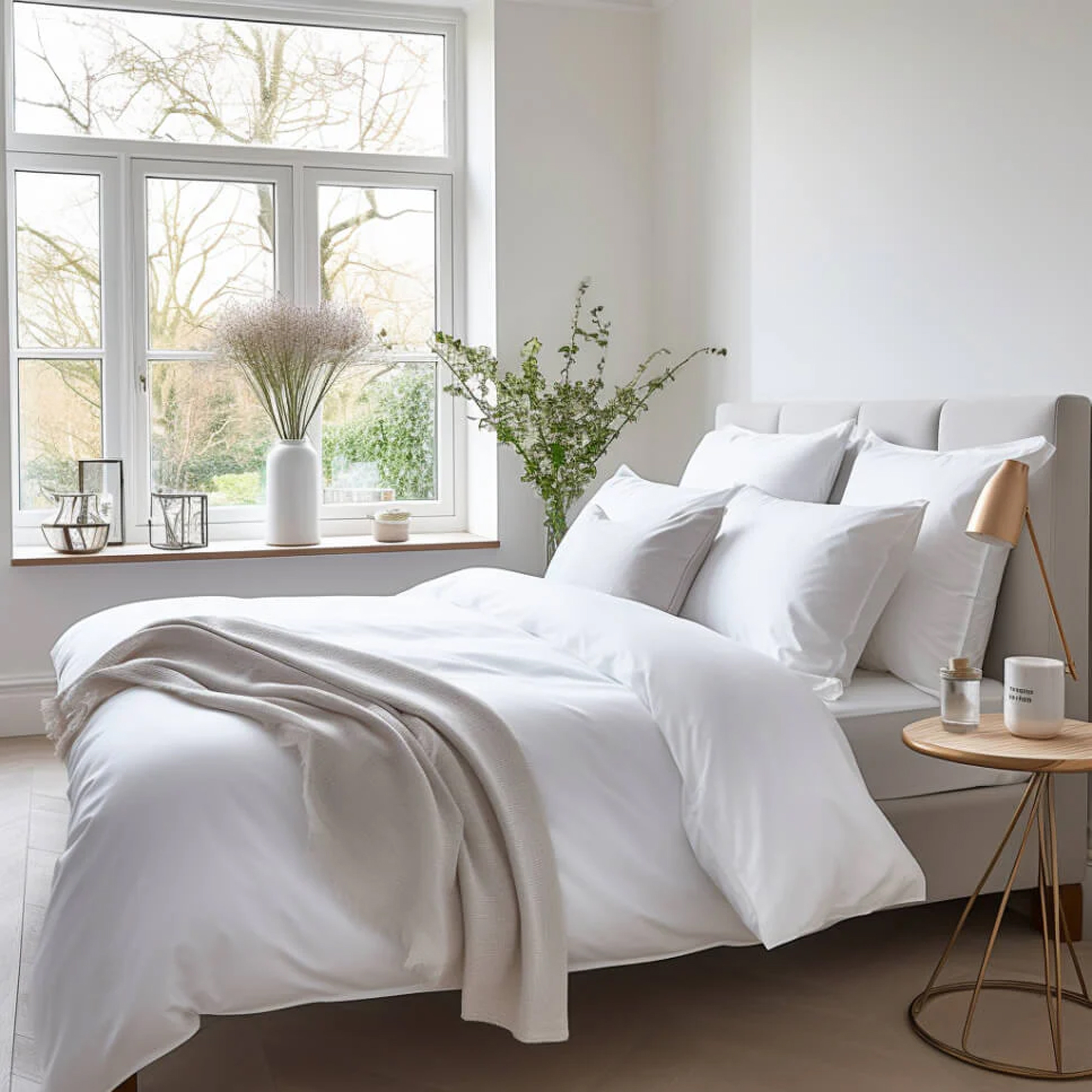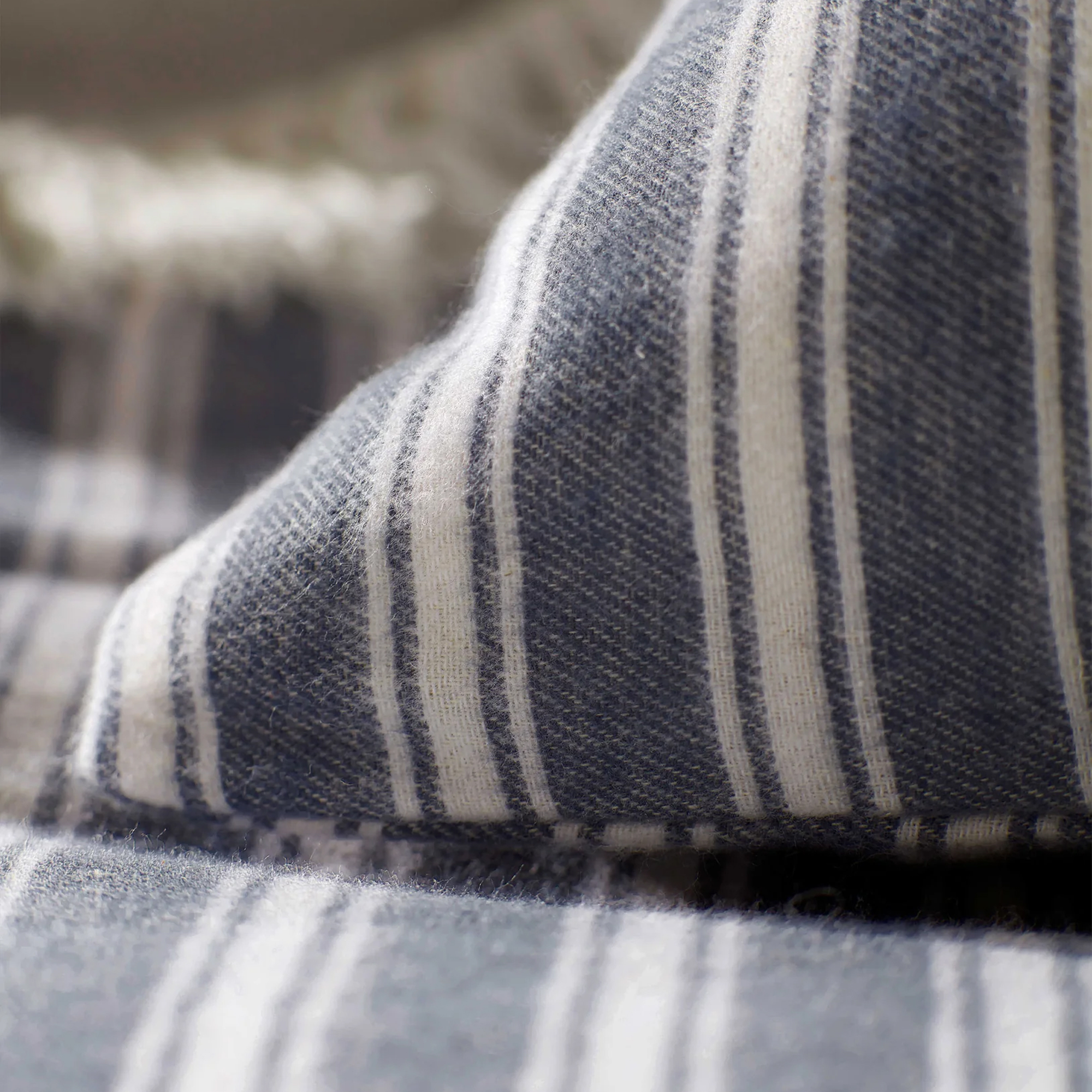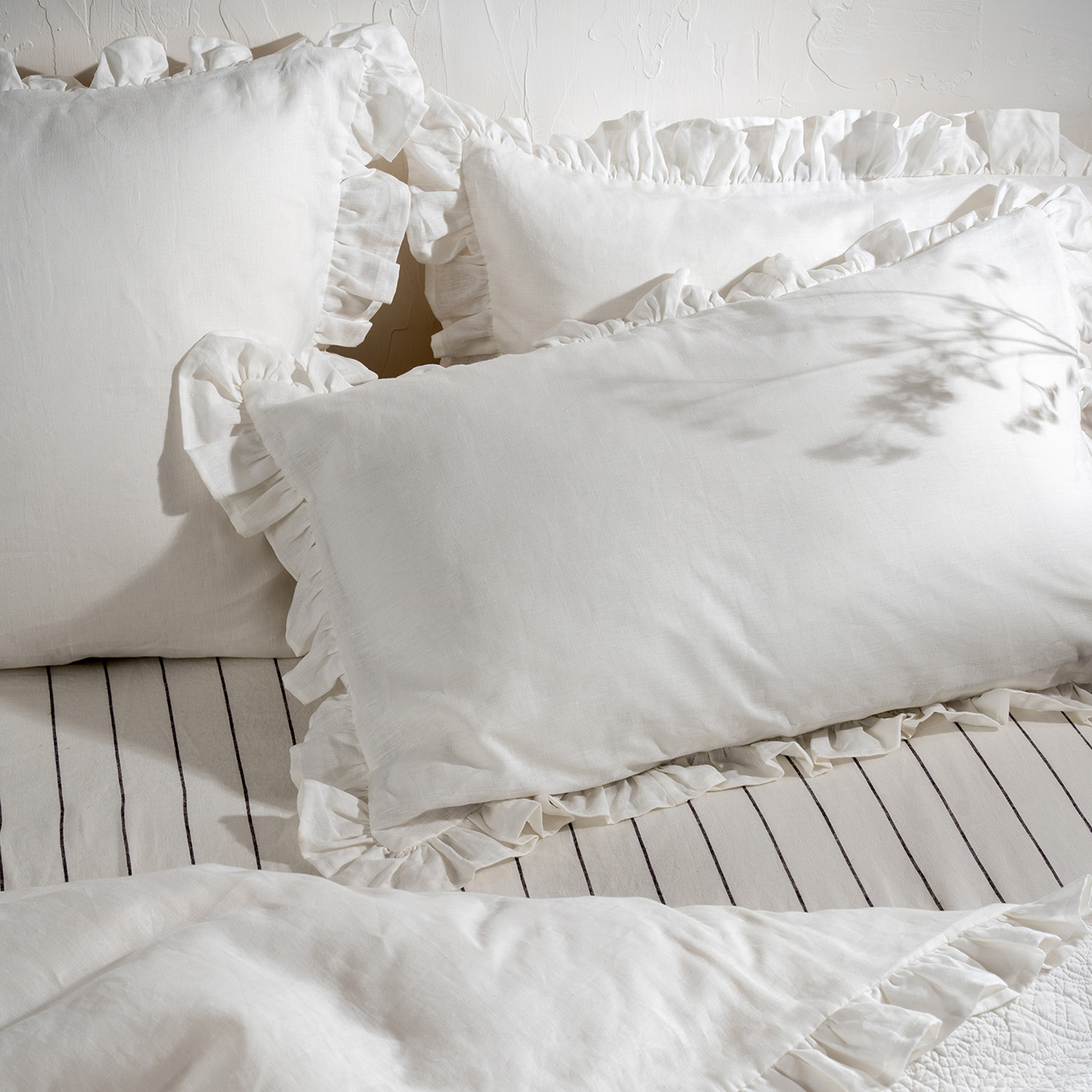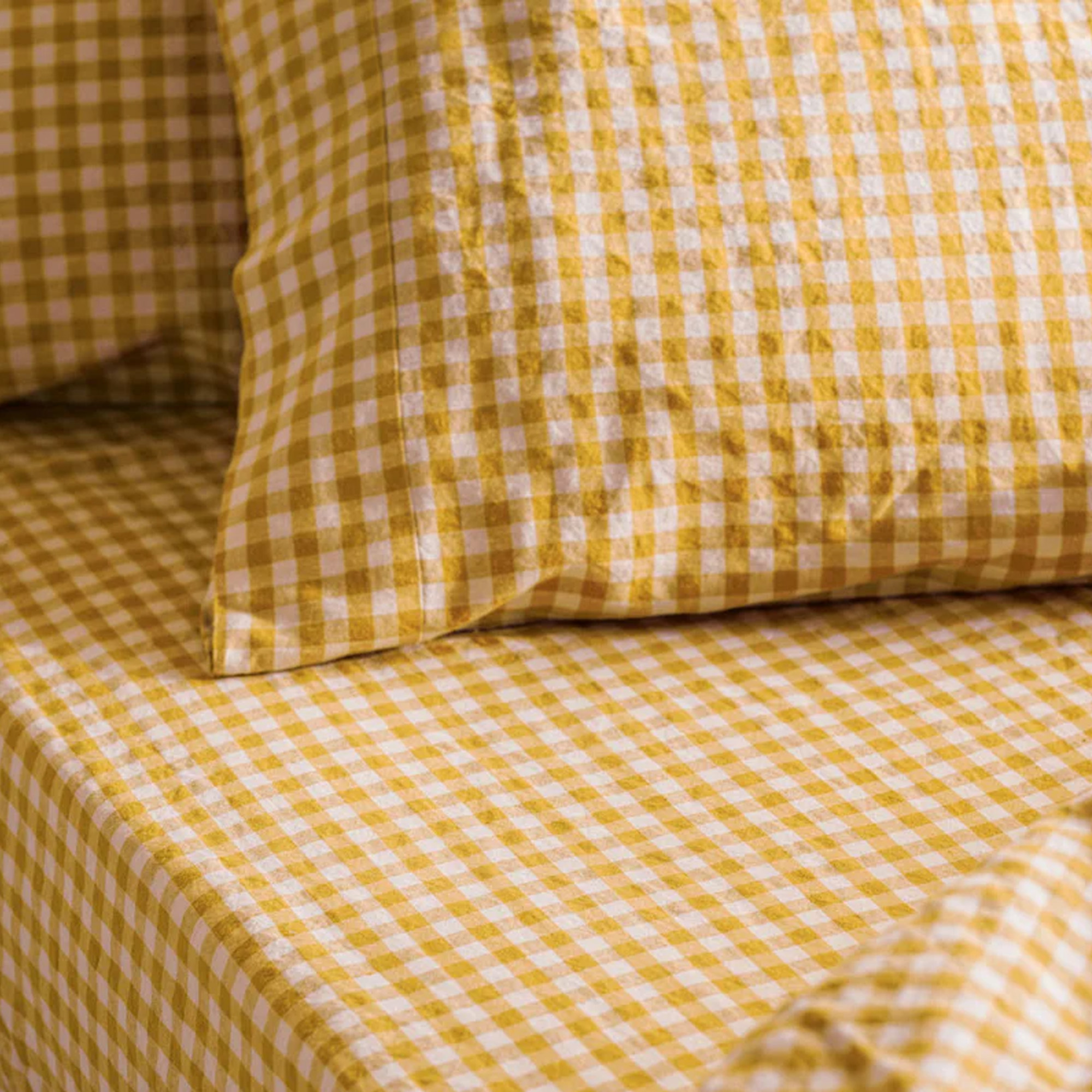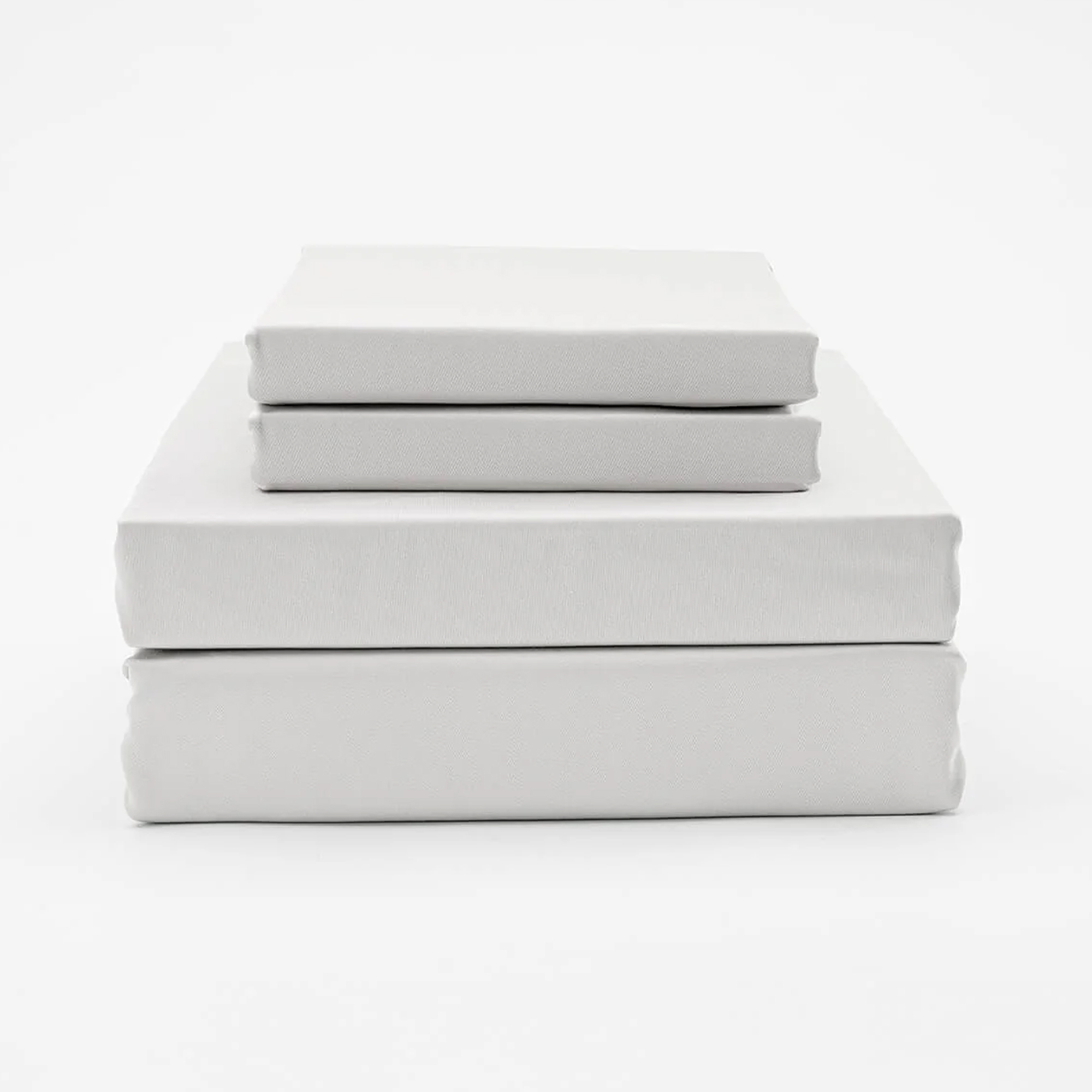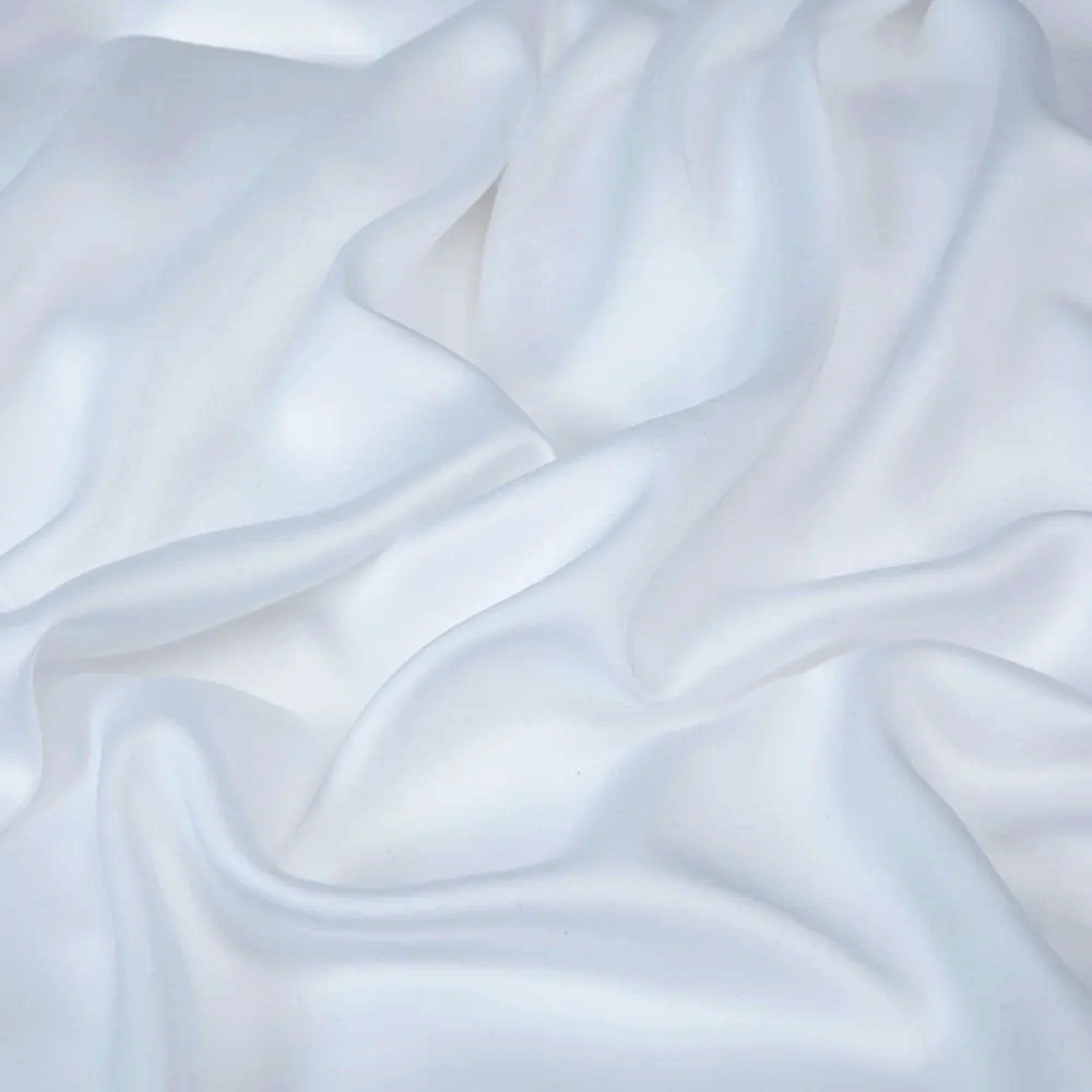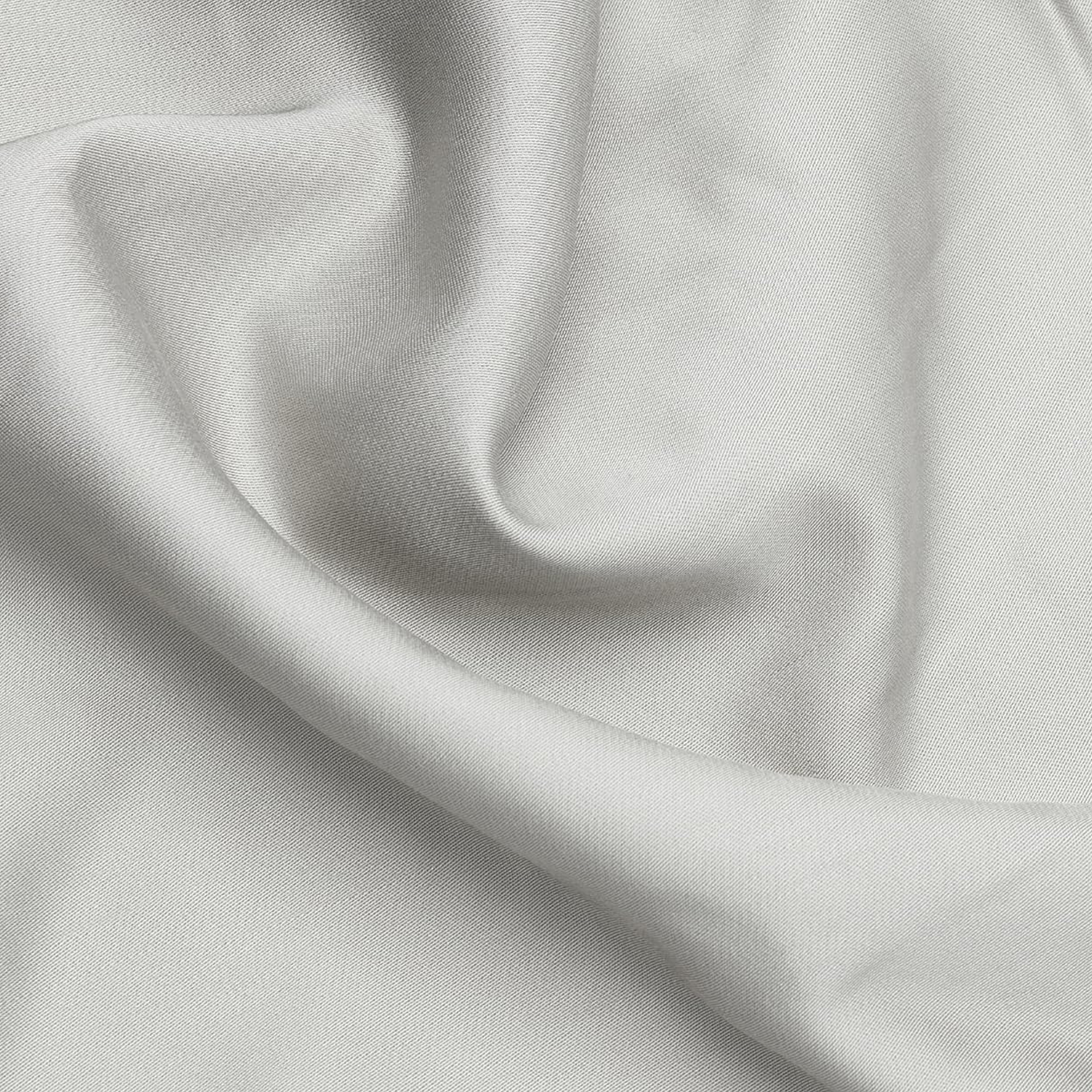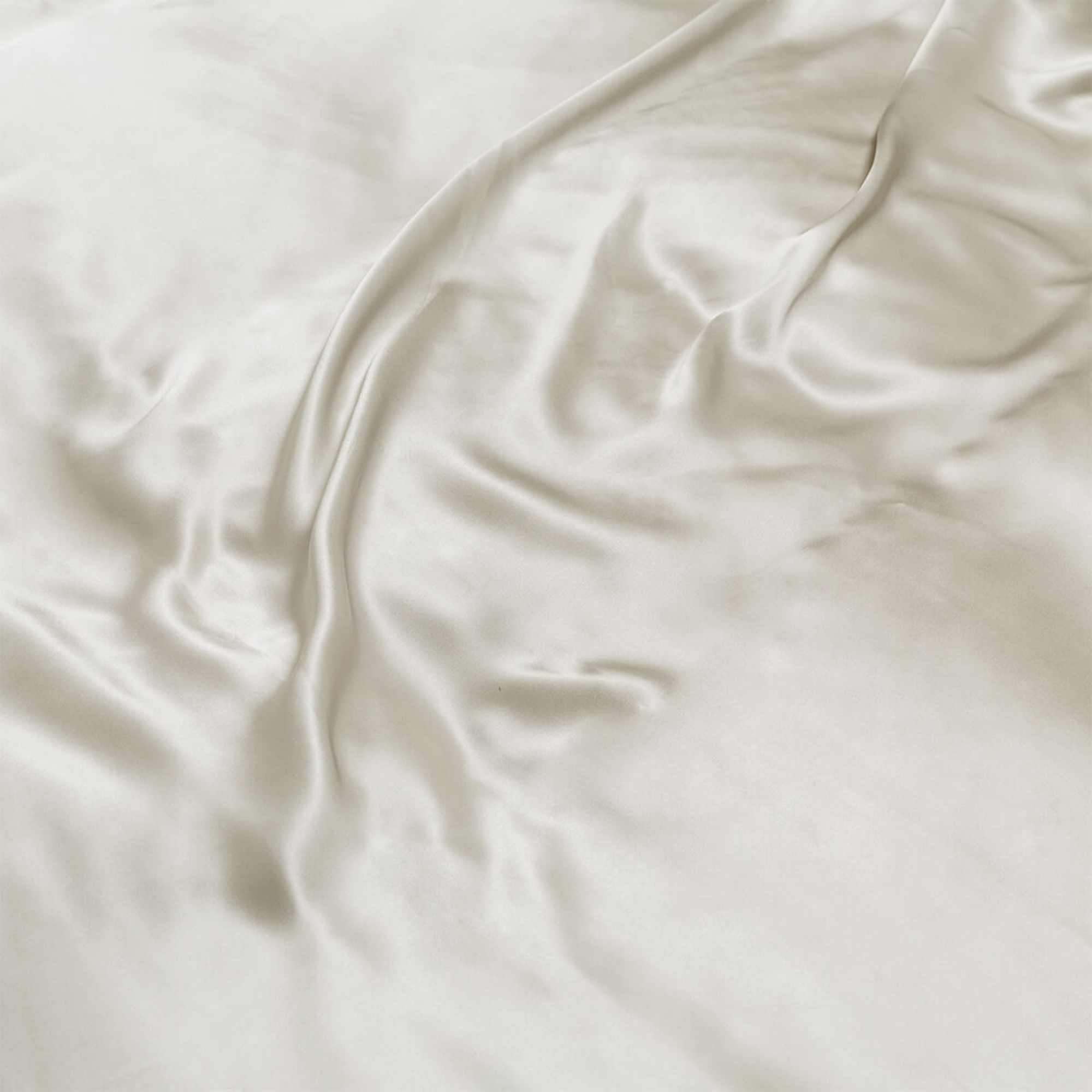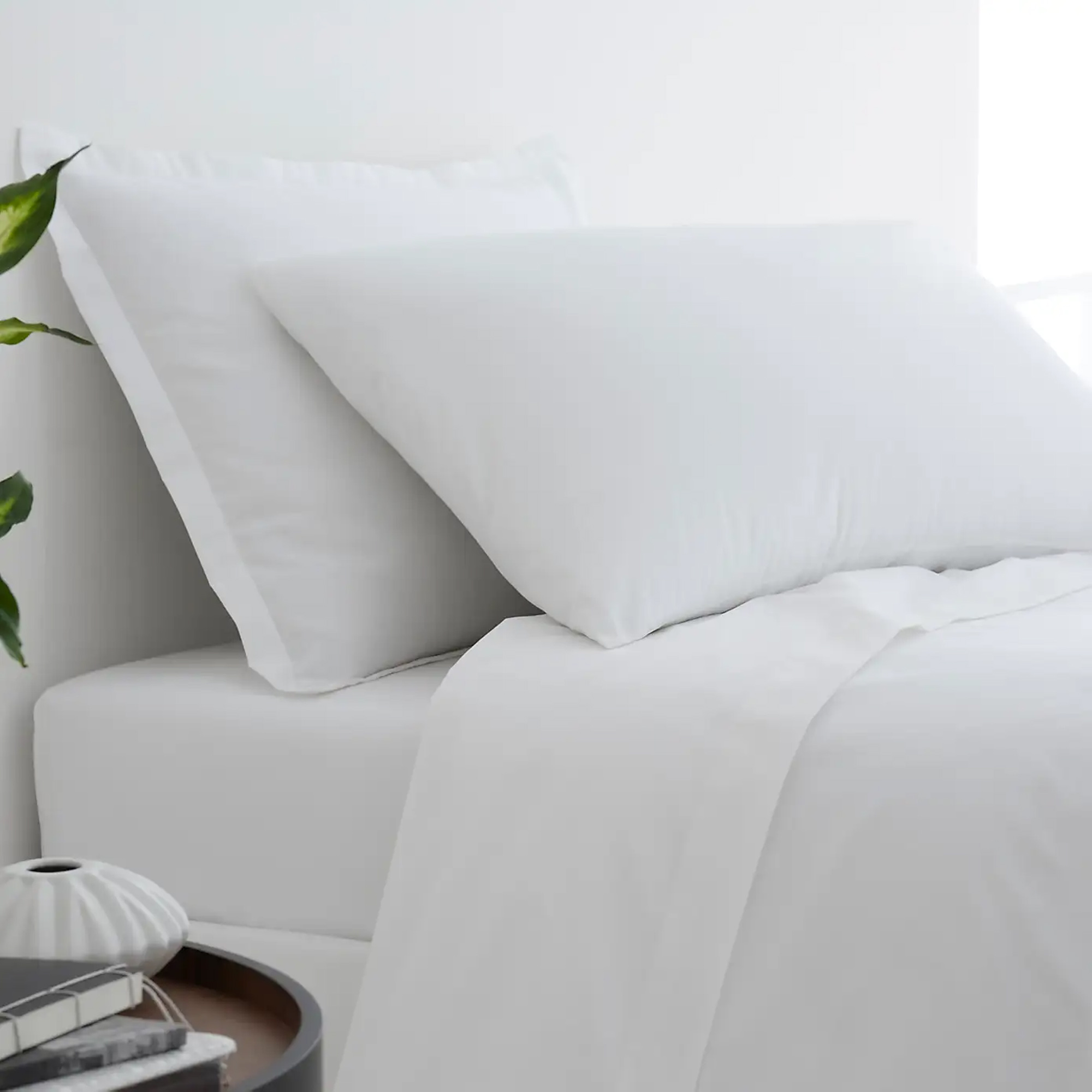I asked bedding experts what the best sheet material for a good night's sleep is – the fabrics to buy, and one to avoid
Cotton, linen, bamboo, and silk sheets are all high on our experts' list

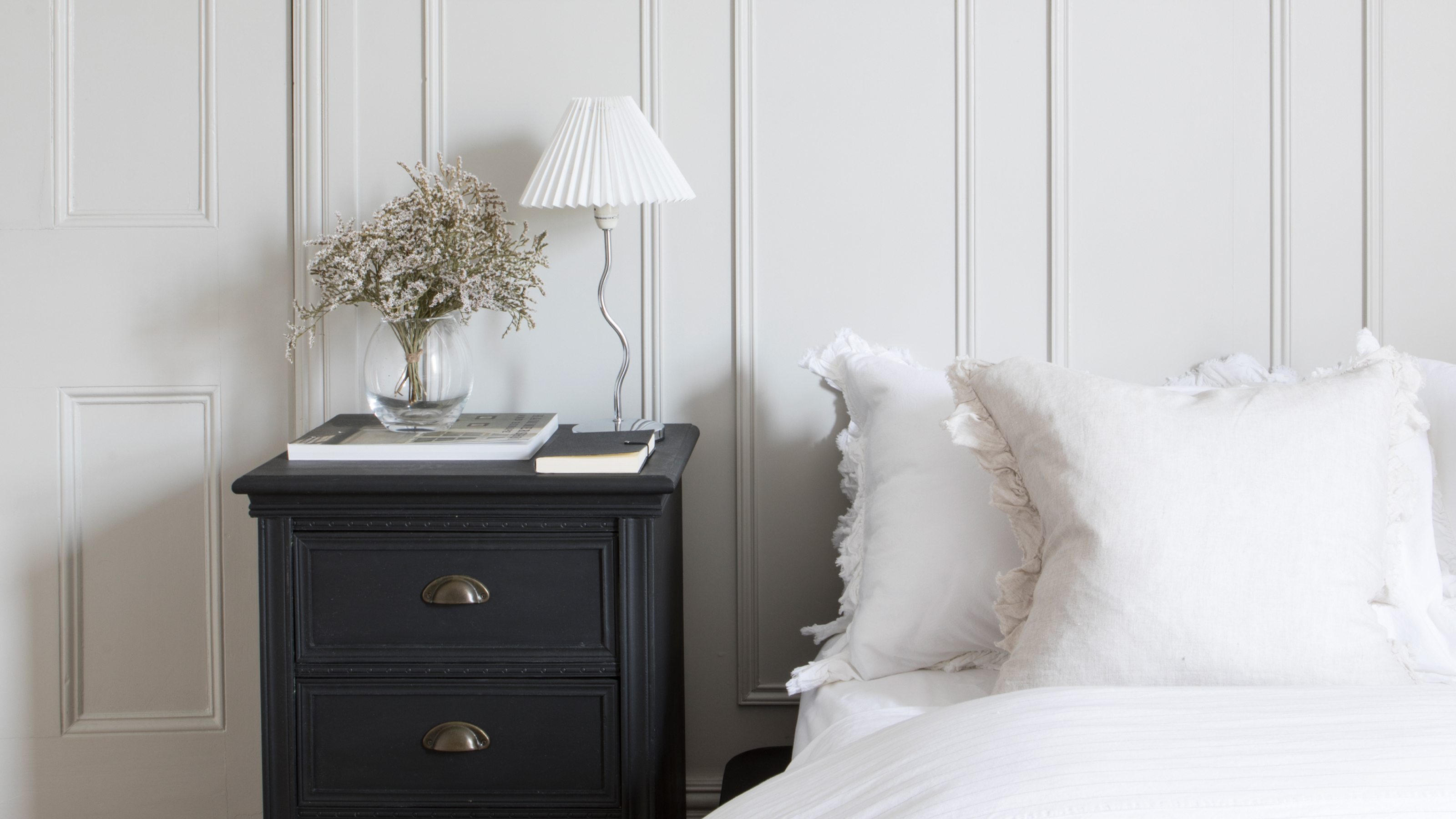
Sign up to our newsletter for style inspiration, real homes, project and garden advice and shopping know-how
You are now subscribed
Your newsletter sign-up was successful
If you’re looking to invest in quality sheets for your bed, then you need to understand the best sheet materials.
That’s because the fabric you opt for is what has the biggest impact on the comfort, breathability, and durability of your bed linen.
As Ideal Home’s Sleep Editor I’ve slept on sheets made from pretty much every material under the sun, and along with some trusted bedding experts, I’m here to explain all in this guide.
If you're considering where to buy bedding, this is everything you need to know when it comes to shopping for the best sheets.
Best sheets material
If you're on the hunt for the best sheets material, I would always recommend opting for bed linen made from natural materials. That's because these materials have better breathability and temperature regulation, and your body being able to regulate its temperature is a key factor in a well-rested sleep.
'Investing in bedding made from 100% natural materials, like cotton, linen, or bamboo, will make a huge difference to your sleep experience,’ agrees Jo James, founder and creative director of Bedfolk. ‘These materials are temperature regulating and naturally breathable.’
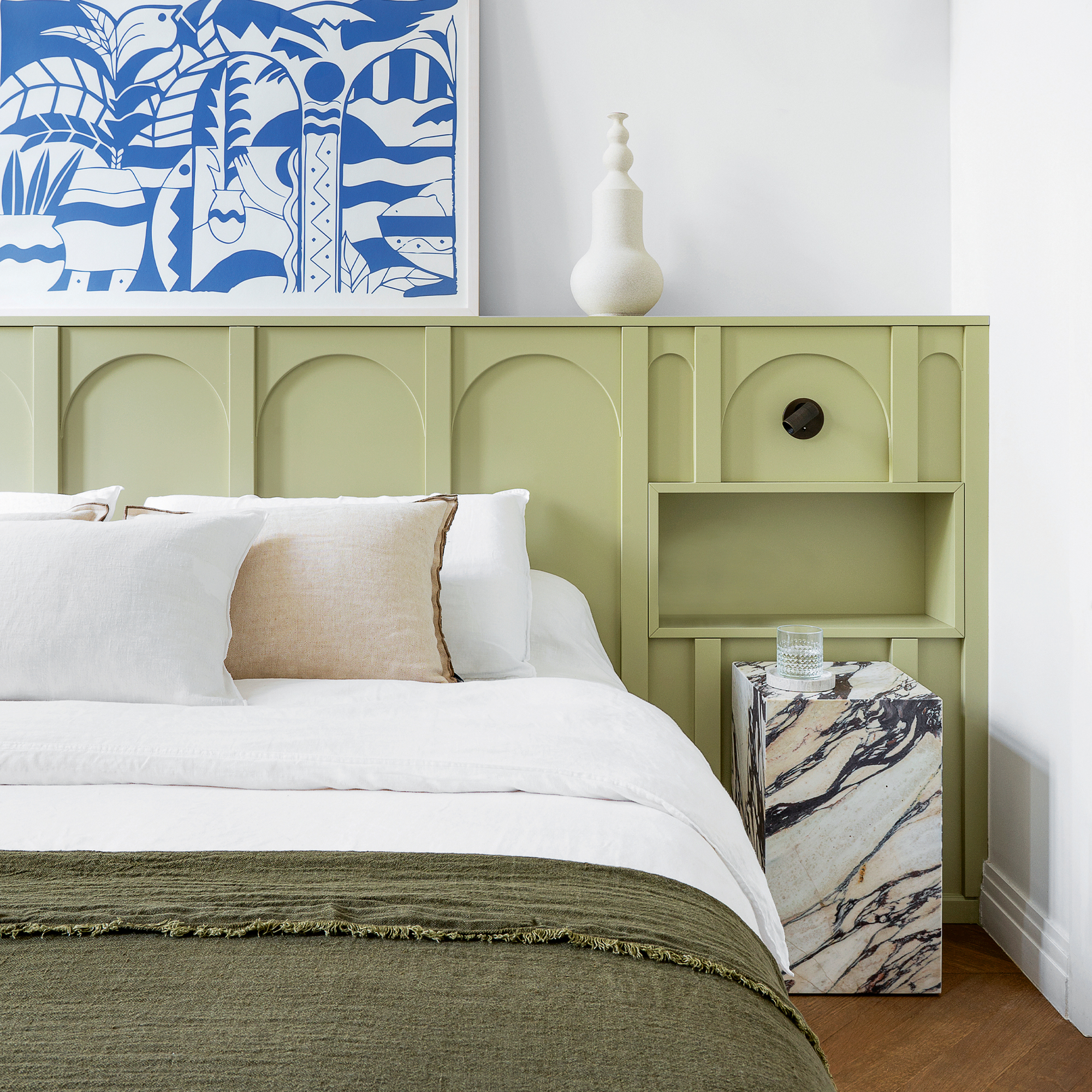
Personally, I think Egyptian cotton bed sheets are some of the best you can buy. But cotton percale is an affordable alternative, bamboo makes for a cool and silky sleep surface, and linen is perfect for a relaxed look. In the winter, brushed cotton bed sheets can also make for a cosy yet breathable bed.
Sign up to our newsletter for style inspiration, real homes, project and garden advice and shopping know-how
Without further ado, let’s dive into a closer look at these natural materials. First up, cotton.
Cotton
Cotton is one of the most popular sheet materials. It's breathable, durable, relatively affordable, and generally easy to care for. 'Choosing bed linen made from natural materials such as 100% cotton is recommended all year round, but particularly in summer as cotton is breathable and won’t trap in heat,’ explains Farah Arshad, head of design at DUSK.
‘Cotton is the most popular choice and generally an affordable fabric for sheets,’ agrees sleep expert and founder of The Sleep Site, Dave Gibson, 'but don't make the mistake of thinking that all cottons are the same. Be aware that different weaves will change the feel and breathability.’
The most common weaves you'll come across are cotton sateen or cotton percale sheets. Cotton sateen creates a fabric with a luxurious sheen that has a smoother feel, whilst cotton percale has a matte finish and a tighter weave.
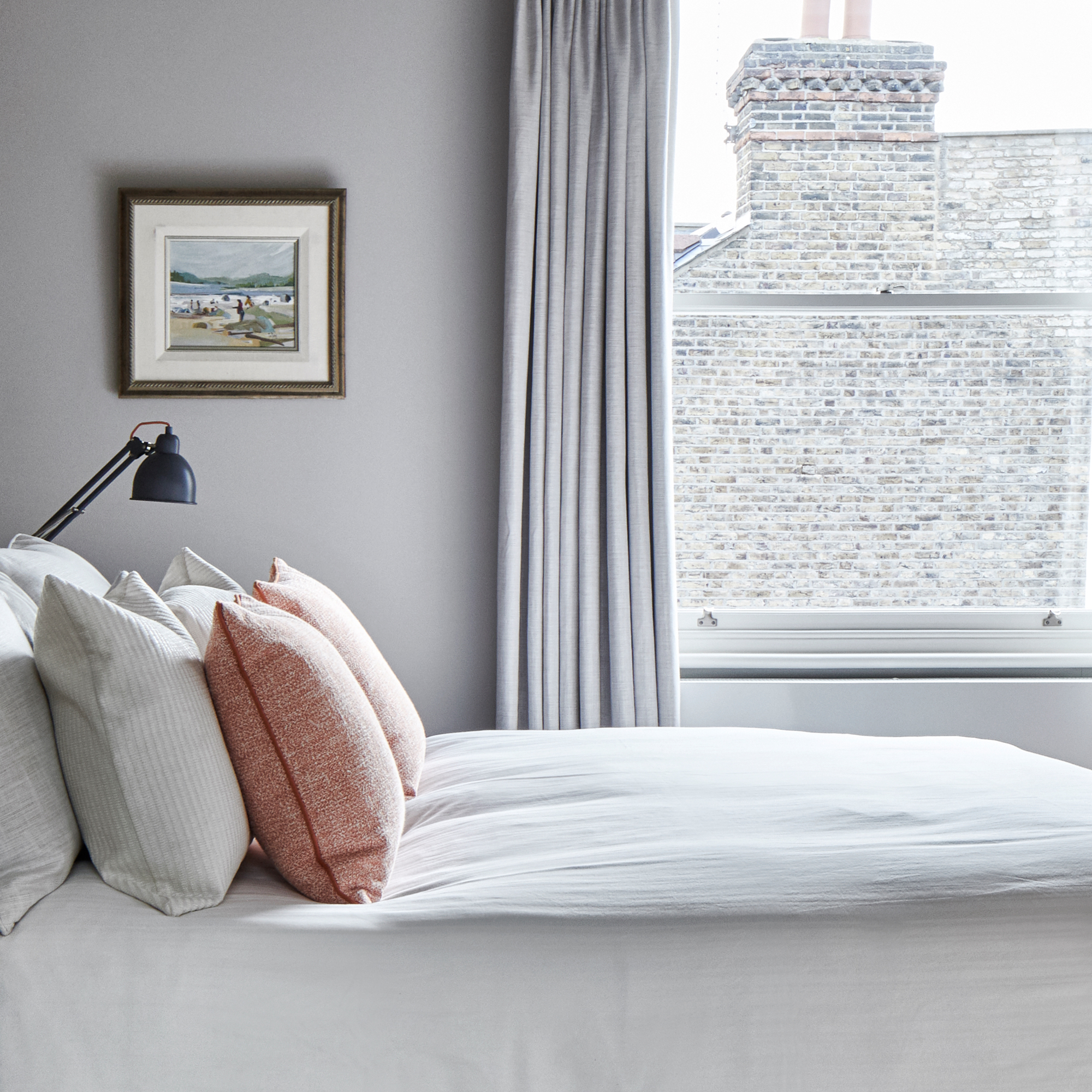
Cotton percale bed linen is usually more affordable and more durable than cotton sateen, which can be more prone to snagging. Percale is also a more breathable fabric, so it’s great for the summer or hot sleepers. 'Percale, known for its crisp feel, tends to be the best choice for cotton in terms of breathability,’ agrees Dave.
Percale is also usually easier to wash and care for. However, if you want a luxe look and feel to your bedding, you may want to splash out on sateen.
Then there’s the best thread count for sheets to consider. 'The thread count of bed linen refers to how many threads are in a square inch of the material,' explains Farah at DUSK. 'This number is worked out by counting the number of horizontal and vertical threads within the fabric.’
It can be easy to think that a higher thread count means better quality sheets, but our experts all agree this isn’t the case. Instead, they recommend opting for sheets that are somewhere between a 200 and 400 thread count. This offers a good balance of quality, plus breathability and ease of care.
And lastly, it's worth understanding the difference between cotton and Egyptian cotton.
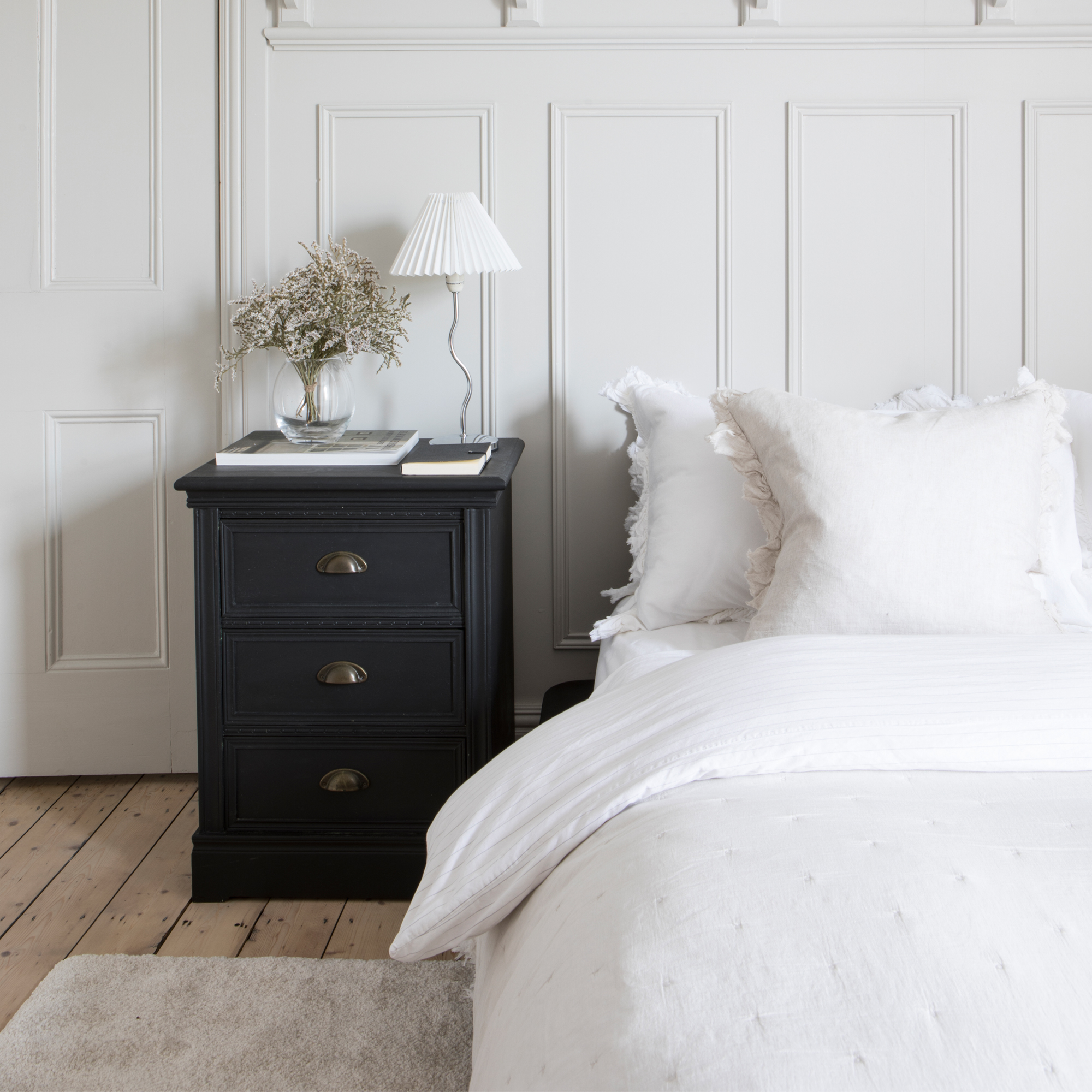
'Many believe 100% cotton and 100% Egyptian cotton are the same thing,’ explain the homeware team at Next, 'but they aren't.' Egyptian cotton is definitely the most expensive of the two fibres, but if you're looking for the best sheets material possible, 'opt for Egyptian cotton bedding,' say Next's bedding experts. 'It's more breathable and absorbent than normal cotton.'
It's also by far the softest and most luxurious type of cotton. 'Egyptian cotton remains the gold standard for luxury bedding,' agrees Caroline Brooks, founder of Hampton and Astley. 'The long-staple fibres of Egyptian cotton produce exceptionally soft, smooth and durable sheets that get better with every wash.'
Other cotton fabrics it's worth knowing about are brushed cotton bedding, which has a peachy softness that makes it super cosy during the winter months. This is my top recommendation for the best sheet material to use during the colder months, as it removes the chill-factor of climbing into a cold bed.
Whichever type of cotton sheets you opt for, just make sure you are buying pure cotton. 'Always check the label,' warn the Next homeware team, 'bed linen may appear to be 100% cotton, but you may find that it's actually a cotton blend containing other materials like viscose or polyester, and these fabrics will trap the heat.'
Linen
Next up, linen is another contender for best sheets material. In general, linen will feel a little rougher than cotton, but it has fantastic breathability, so it's ideal for hot sleepers, and it creates a relaxed look with no ironing required.
'Linen keeps you cool when it’s warm, and cosy when it’s not, thanks to its clever natural fibres,' explains Molly Freshwater, co-founder of Secret Linen Store. 'It has that perfectly relaxed look that only gets better with age – effortless, natural, and beautifully lived-in from the very first sleep. I love that it never feels too polished, and you don’t need to iron it.'
'For those after a slightly smoother finish, a linen-cotton blend offers the best of both worlds,' adds Jessica Hanley founder of Piglet in Bed, 'the relaxed texture of linen with the softness of cotton.'
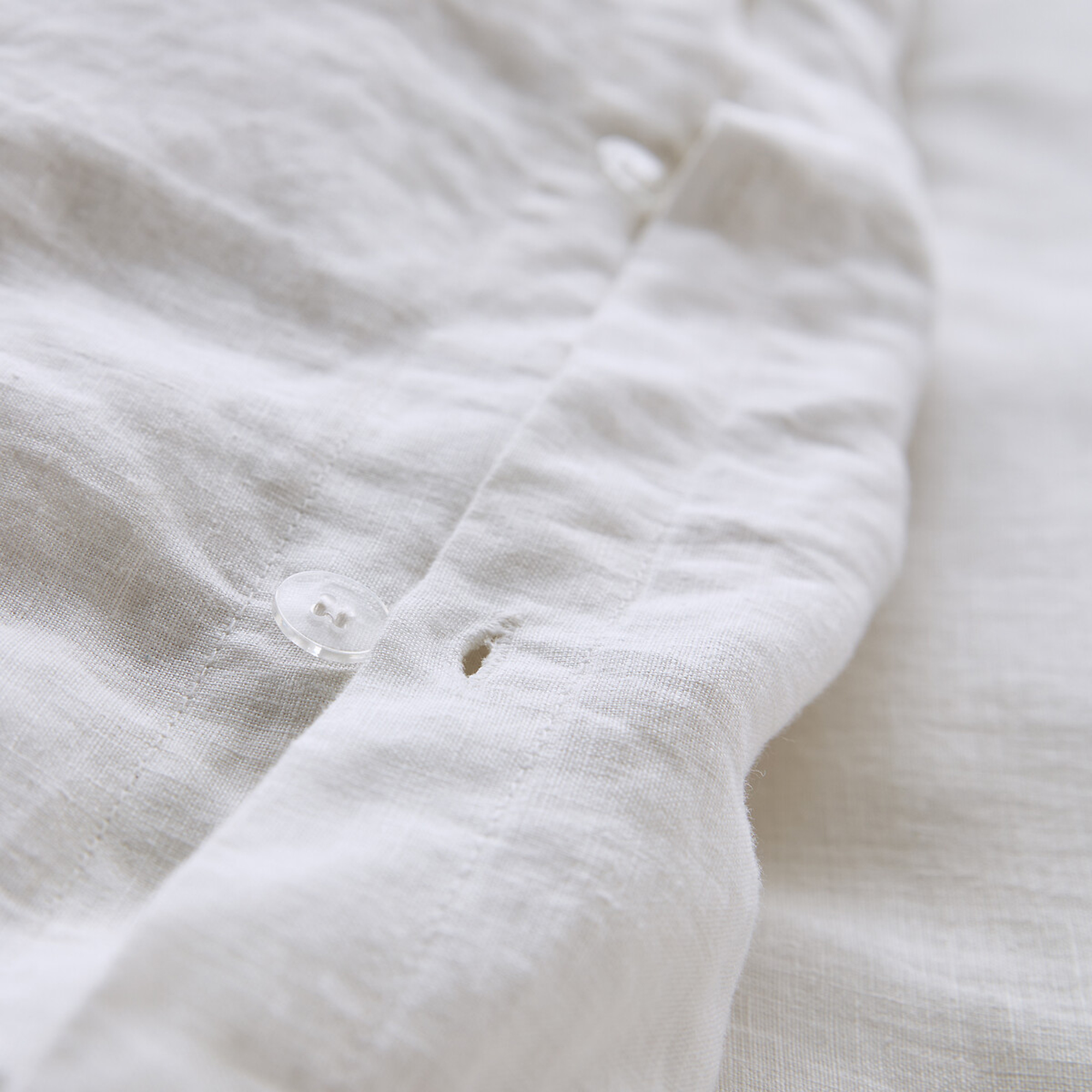
La Redoute's Linot linen bedding is another relatively affordable option, and it comes in a great choice of colourways. Opting for a flat versus a fitted sheet can also be a more versatile option, as it allows for layering under or over your body.
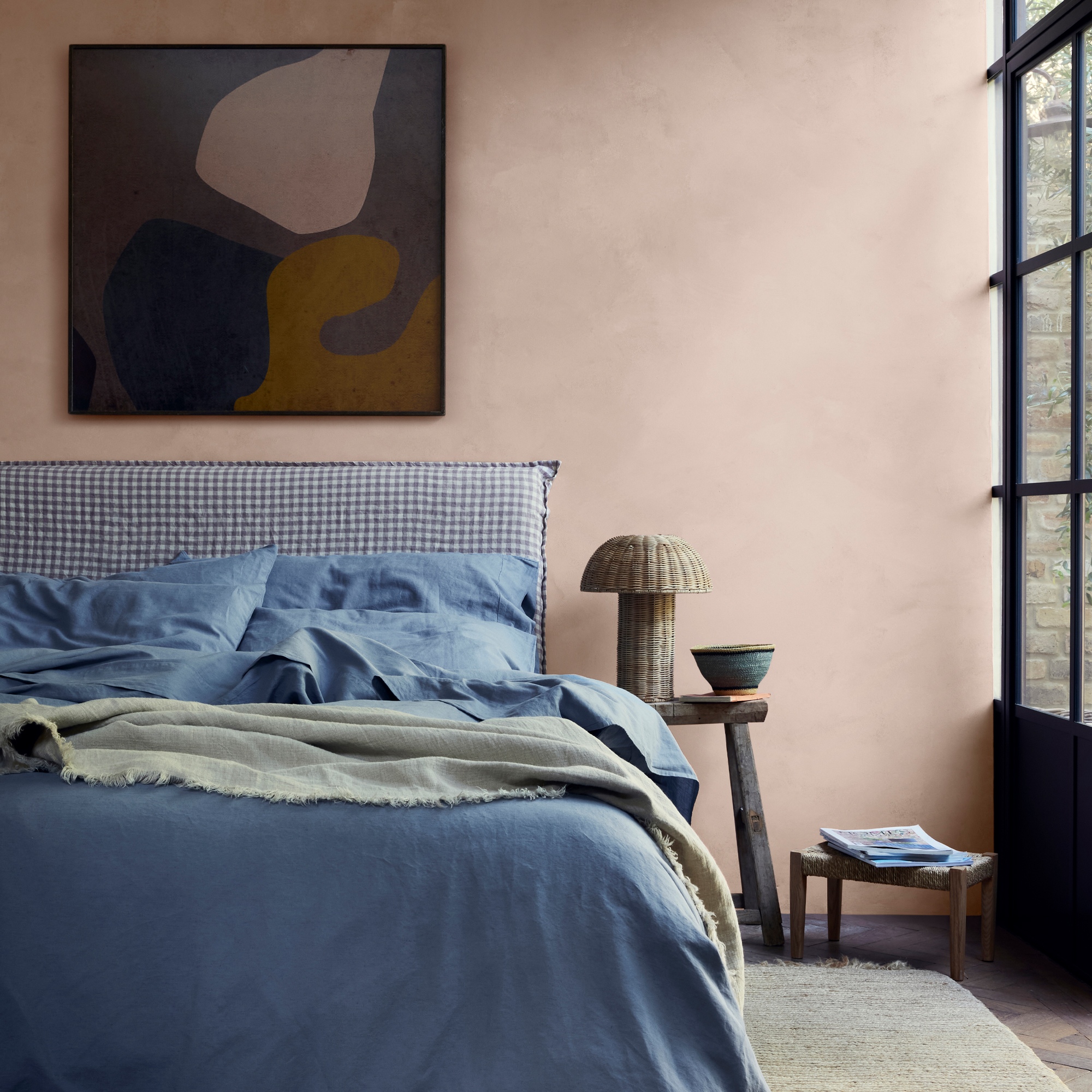
Bamboo
Bamboo bed linen is a fairly new addition to the market compared to classic sheet materials such as cotton or linen, but it's fast growing in popularity. Having recently tested some of the best bamboo sheets, it's easy to see why.
'Bamboo fabrics can feel incredibly silky and cool to the touch,' explains Molly from Secret Linen Store. That makes for a very luxurious night's sleep, especially in the summer months.
This said, that chill factor may be a little too much in the winter months. Plus, this is a delicate fabric, so it's more prone to snagging than cotton or linen.
'Bamboo fabric can feel soft, but lacks the durability of cotton,' agrees Caroline at Hampton and Astley. It also requires more TLC to care for, with bamboo sheets generally requiring a lower temperature wash than cotton or linen.
If you're after a durable, easy-care fabric, bamboo sheets may not be for you. They also aren't cheap. But, if you're willing to splash out on some luxurious summer bed sheets, this silky material won't disappoint.
Silk
If you're after the ultimate in luxury, then you might also want to consider silk sheets. There are several reasons that silk sheets can help you sleep better, but the main downside is their price. Silk sheets are *expensive*.
Silk also requires a *lot* more TLC to look after and keep in good condition. These aren't the sheets to invest in if you're a 'bung it all in the washing machine and hope for the best' type of person. Instead, this choice is all about indulgence.
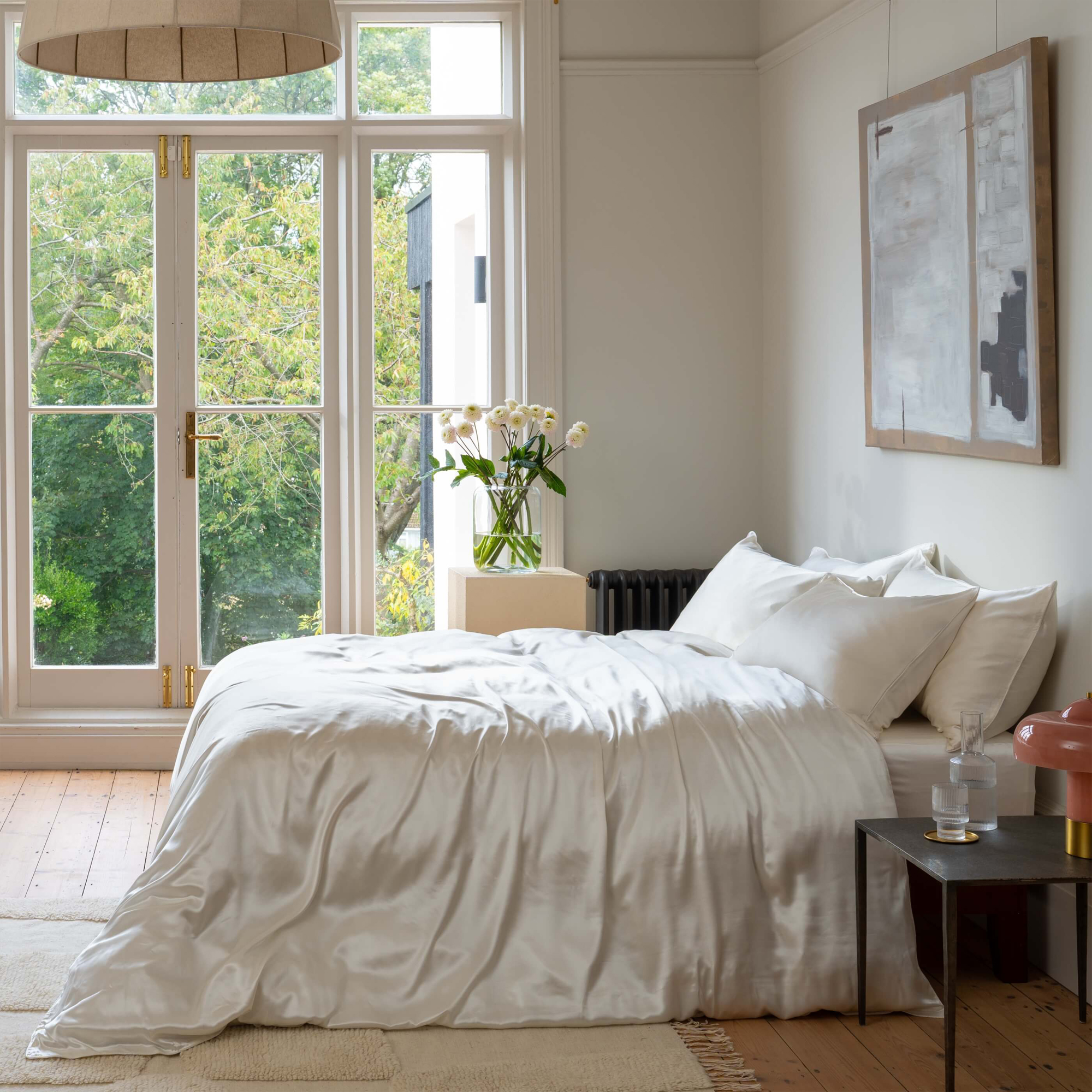
'Silk fibre has a high protein content, which will keep your skin soft as you sleep, making it the ideal choice for anyone with allergies or skin conditions such as eczema,’ explains Deborah Fiddy co-founder of Gingerlily.
'Silk is also temperature-regulating, so it'll help keep you cool and comfortable throughout the night,' say Emily and Jonathan Attwood, founders of scooms. 'Naturally breathable and moisture-wicking, it’s great for those who are hot sleepers.
'But most importantly, it’s irresistibly comfortable and looks and feels totally luxurious,' says Deborah.
But not polyester
Lastly, it's worth mentioning polyester and polycotton sheets. Polyester is a synthetic manmade material with a composition similar to plastic. It gets a bad rap because this means it lacks breathability and can create a very hot and sweaty sleep. It's often dubbed the hidden sleep thief for this reason.
However, it remains a popular sheet material because polyester or polycotton (a mix of polyester and cotton) sheets are generally the most affordable option on the market. It's also useful for those who prioritise ease of care; polyester can usually be washed at high temperatures, and it's very quick to dry.
Plus, polyester bed linen can be crafted in a mind-boggling array of colours and patterns, so it's often used for novelty Christmas bedding or cheap and cheerful bedroom updates.
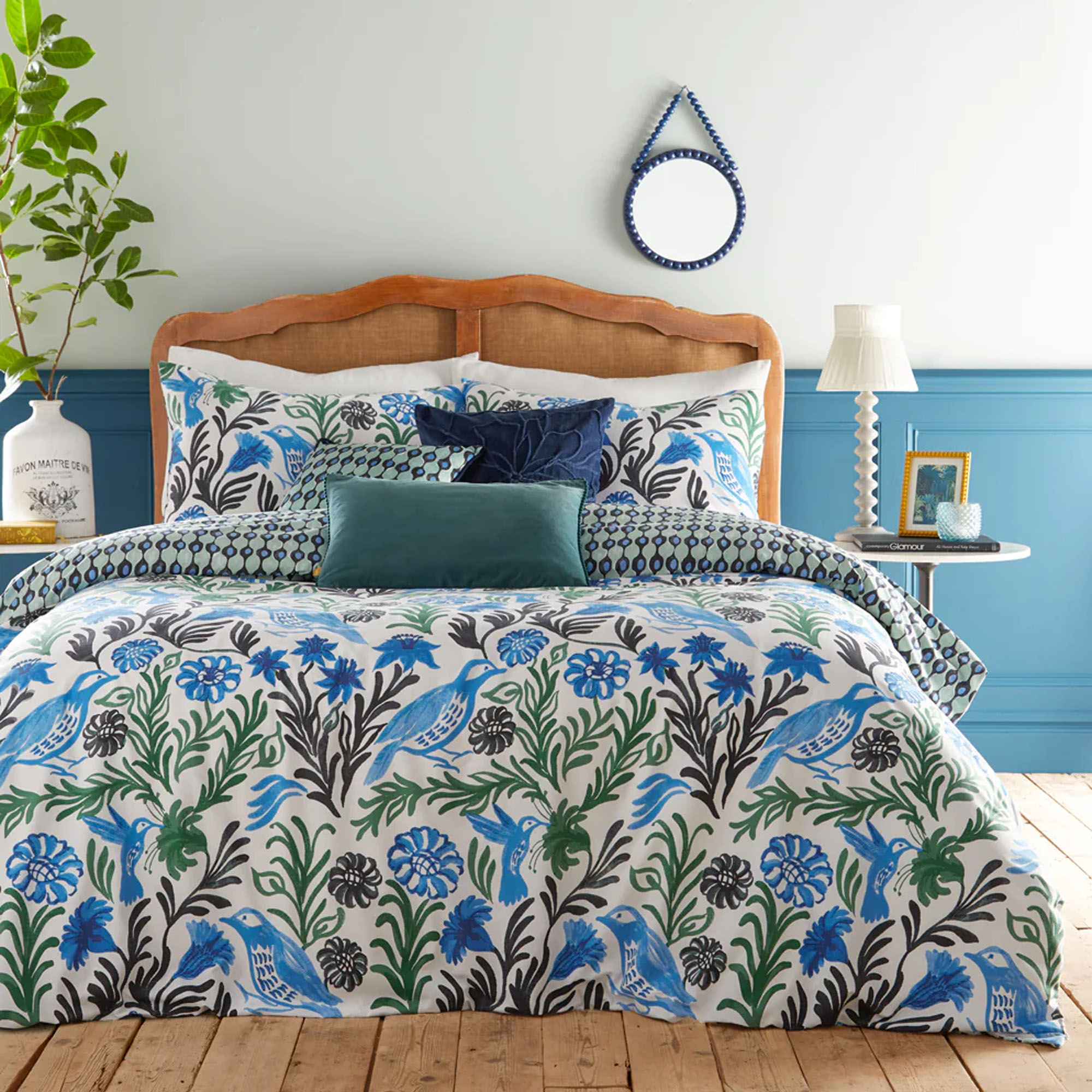
I wouldn't ever recommend polyester or polycotton as the best sheets material though. 'Avoid anything synthetic, which can lead to a sweaty and uncomfortable sleep,’ agrees Jo James from Bedfolk.
Instead, if you're looking for budget-friendly bed sheets, there are affordable cotton options on the market. Dunelm's Pure Cotton Sheets are the most affordable I've found. They don't feel as luxurious as higher thread count or Egyptian cotton sheets, but they will offer far more breathability than polyester or a polyester and cotton mix.
So there we go, everything you need to know to choose the best sheets material and secure yourself the most restful night's sleep possible. Happy snoozing!

Amy is Ideal Home’s Sleep Editor and the Ideal Home Certified Expert on Sleep. She's spent the last five years researching and writing about what makes for the best night’s sleep during the day and testing out sleep products to find the best-in-class by night. So far she’s clocked up over 10,000 hours of pillow, duvet, and mattress testing experience.
Our go-to for all things sleep-related, she’s slept on and under bestselling products from Simba, Emma, Hypnos, Tempur, Silentnight, Panda, and many many more.
As a hot sleeper, Amy is always on the lookout for the most breathable bedding, but she also leads a wider team of testers to ensure our product testing encompasses both hot sleepers, cold sleepers, front sleepers, back sleepers, side sleepers, and everything in-between.
